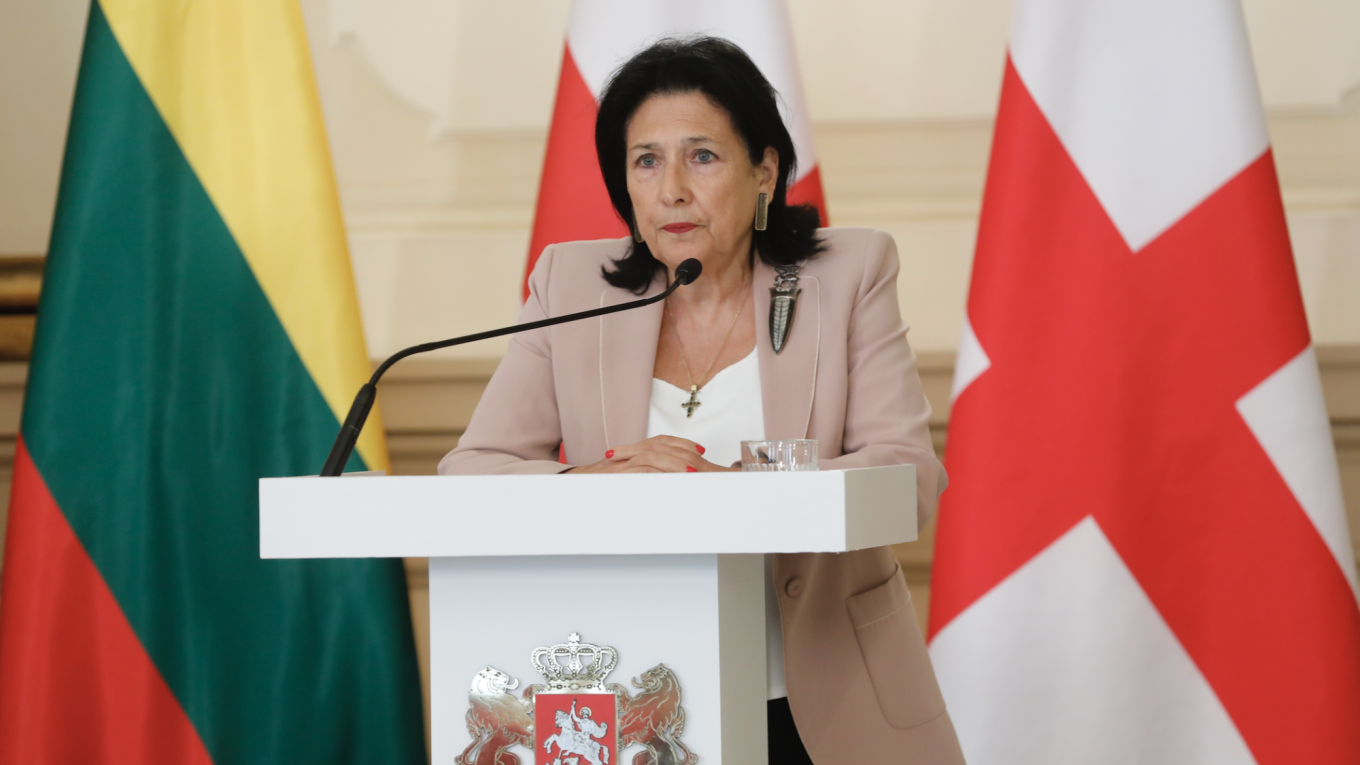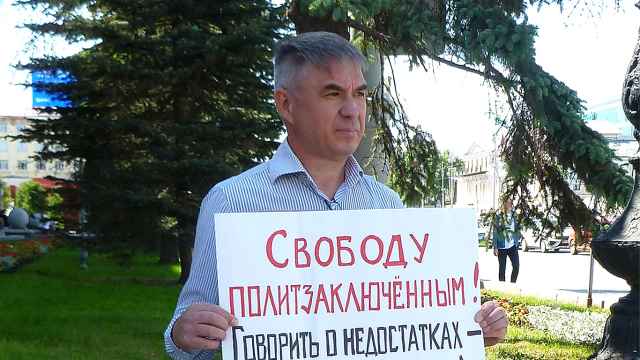Georgian President Salome Zurabishvili on Saturday put a mostly symbolic veto on the "foreign influence" law that sparked unprecedented protests and warnings from Brussels that the measure would undermine Tbilisi's EU aspirations.
Ruling Georgian Dream party lawmakers voted through the legislation this week in defiance of protesters concerned the ex-Soviet republic is shifting away from a pro-Western course back toward Russia.
The move has sparked a wave of protests unprecedented in the recent history of the Black Sea nation.
According to opinion polls, more than 80% of the population wants to join the European Union and NATO, and is staunchly anti-Kremlin.
"Today I set a veto... on the law, which is Russian in its essence, and which contradicts our constitution," Zurabishvili said in a televised statement, speaking about the bill that critics describe as resembling Russian legislation used to silence dissent.
Brussels has said the measure is "incompatible" with Georgia's bid for EU membership, which is enshrined in the country's constitution.
European Council chief Charles Michel said on X, formerly Twitter, that the veto offered "a moment for further reflection."
He called on lawmakers to "make good use of this window of opportunity" to keep Georgia on its EU path.
Georgian Dream has enough lawmakers in parliament to override the veto.
Prime Minister Irakli Kobakhidze has signaled his party's readiness to consider Zurabishvili's proposed amendments to the law, should she lay them out in her veto document.
But the figurehead president — at loggerheads with the ruling party – has ruled out the prospect of entering "false, artificial, misleading negotiations" with Georgian Dream.
The bill requires NGOs and media outlets that receive more than 20% of their funding from abroad to register as bodies "pursuing the interests of a foreign power."
A Message from The Moscow Times:
Dear readers,
We are facing unprecedented challenges. Russia's Prosecutor General's Office has designated The Moscow Times as an "undesirable" organization, criminalizing our work and putting our staff at risk of prosecution. This follows our earlier unjust labeling as a "foreign agent."
These actions are direct attempts to silence independent journalism in Russia. The authorities claim our work "discredits the decisions of the Russian leadership." We see things differently: we strive to provide accurate, unbiased reporting on Russia.
We, the journalists of The Moscow Times, refuse to be silenced. But to continue our work, we need your help.
Your support, no matter how small, makes a world of difference. If you can, please support us monthly starting from just $2. It's quick to set up, and every contribution makes a significant impact.
By supporting The Moscow Times, you're defending open, independent journalism in the face of repression. Thank you for standing with us.
Remind me later.






